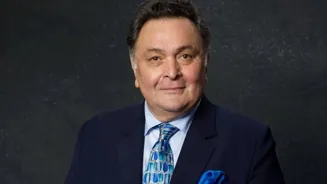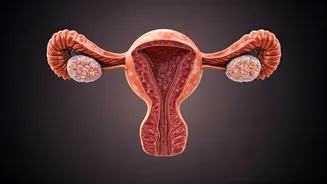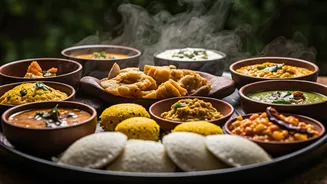
If anyone were to inquire about the pivotal roles of Rishi Kapoor, as a film enthusiast, I would likely mention Mera Naam Joker, Bobby, and Damini as some
of his most unforgettable performances. However, a member of the renowned first family of Bollywood – the late Kapoor was much more than just the few films I mentioned. Making his debut as a child actor in his father Raj Kapoor’s legendary Mera Naam Joker (though his initial appearance was in the 1955 Shree 420), Kapoor established a legacy of serenading elegantly dressed women against stunning backdrops or enchanting them with soulful melodies on sun-kissed shores. Yet, Rishi Kapoor should perhaps be most celebrated for his extraordinary transformation. Over a span of five decades, the late actor’s filmography is a colorful tapestry of romance, drama, comedy, and depth. From the naive allure of a youthful lover in Bobby to the complex intensity of a father figure or villain, Rishi Kapoor continually reinvented himself across generations, genres, and artistic sensibilities.
Rishi Kapoor: The Romantic Icon Who Shaped an Era

The late Rishi Kapoor rose to fame in 1973 with his father Raj Kapoor’s Bobby – a film that would redefine adolescent romance in India – a theme previously unexplored. Rishi became an instant heartthrob with his striking looks and charming smile, and his depiction of the affluent Raj in love with Bobby, a girl from a humble background, was refreshing, relatable, and irresistibly appealing. The film not only succeeded – establishing a template for love stories for years to come – but Kapoor, with his sparkling eyes and effortless dance moves, became the emblem of romance in the seventies and eighties.
Rafoo Chakkar, Khel Khel Mein, Kabhi Kabhie, Laila Majnu, Sargam, Prem Rog, and Chandni, among others, marked a golden era of romantic films that solidified his "chocolate boy" persona. In the 1980 film Karz, he introduced a thrilling twist to his romantic image by portraying a singer haunted by his previous life. Whether it was a classic love story, one involving reincarnation, or even with a large ensemble cast, Kapoor’s ability to embody vulnerability while maintaining the ‘hero essence’ allowed him to carve out a unique space in an industry otherwise dominated by masculine narratives.
Also Read: Why Is Lord Ganesha Never The Hero In Our Films?
Rishi Kapoor’s Transformation
However, by the 1990s, Bollywood was experiencing a significant transformation with a new generation of actors and evolving audience expectations creating fresh narratives. The romantic roles that had once been Rishi Kapoor’s domain were dwindling. Yet, instead of fading into obscurity or clinging to a past image, Rishi took a bold step that few actors of his era dared to – he opted for reinvention.
Rishi Kapoor’s second act, which began in earnest in the early 2000s, saw him embracing a wide array of character roles, each distinct, daring, and richly layered. Rishi had always been more than just a romantic lead. However, the industry took a long time to finally recognize this.
Rishi Kapoor’s Rise as the Character King
Habib Faisal's Do Dooni Chaar, released in 2010, was perhaps the first film to truly showcase Rishi Kapoor's shift in persona. Rooted in realism and far removed from the opulence of his earlier works, his performance was sincere, humorous, and heartbreakingly authentic. Then came the 2012 Agneepath, where he stunned audiences with his chilling portrayal of Rauf Lala, a merciless drug lord and child trafficker. This role was a stark departure from his previous clean-cut image, and the former chocolate-boy of Bollywood embraced it with chilling conviction.

In the 2016 Kapoor & Sons, he transformed – quite literally – into the emotional heart of a dysfunctional family as Amarjeet Kaur. As the aging, pot-smoking grandfather, Rishi combined humor, wisdom, and vulnerability into a performance that was both funny and deeply moving. In Mulk (2018), he delivered one of his most compelling performances as Murad Ali Mohammed, a Muslim man fighting to clear his family’s name after being wrongfully accused of terrorism. Rich in socio-political commentary, the film required restraint and moral authority – and Rishi delivered.
A personal favorite remains Umesh Shukla's 2018 102 Not Out, where after years Amitabh Bachchan and Rishi Kapoor shared the screen, this time as a father-son duo. Kapoor’s portrayal of the obsessive Babulal, who believes he is too fragile for life, resonated deeply.
Rishi Kapoor’s Legacy of Reinvention and Relevance
Rishi Kapoor’s later roles continue to resonate due to their diversity and bravery. He chose to abandon vanity, embrace his age, and lean into imperfection in an industry that often sidelines older actors. Rishi Kapoor made himself relevant again – not by resisting age, but by accepting it.
Also Read: Shah Rukh Khan, Manisha Koirala And The Machinations Of Love In Dil Se
Even in his final years, while battling cancer, Rishi Kapoor remained eager for meaningful roles. His last films, including The Body and Sharmaji Namkeen (completed posthumously), reflected his ongoing commitment to his growth as an artist.
Rishi Kapoor: A Timeless Star
If, or rather when, Rishi Kapoor’s cinematic journey is recalled, it will serve as a testament to graceful adaptation – from being a heartthrob to a character powerhouse. He may have aged, but as an artist, he deepened. He leaves behind a legacy that proclaims that talent is not static, but rather it evolves, matures, and finds new forms of expression. Rishi Kapoor embraced change, and in that change, he remains a constant in his cinematic legacy.














